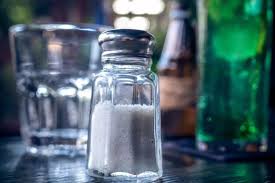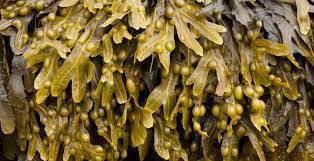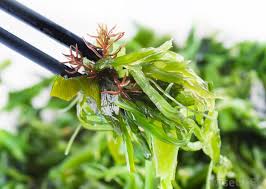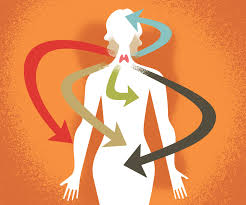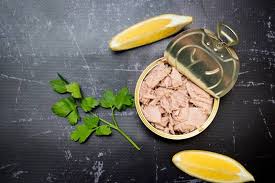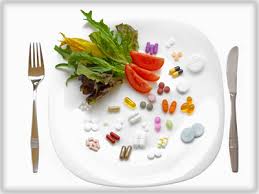Content of the Article
What is iodine? Iodine is an important mineral that our body cannot make but is necessary to perform some functions.
The thyroid gland uses iodine to make thyroid hormones. It supports metabolism because it repairs damaged cells in the body. Therefore, iodine deficiency in our body means that some problems will arise. Unfortunately, one-third of people worldwide are thought to be iodine-deficient. This is a really serious number. Some individuals are at higher risk of developing iodine deficiency. So who can develop iodine deficiency?
- In pregnant women
- Few in the lands in people with iodine
- Iodized salt in people who do not use
- Those on a vegetarian or vegan diet
What is Iodine?
We mentioned that this mineral works in making thyroid hormones. “What is iodine?” In order to better answer the question, we need to know the functioning of the thyroid gland.
Thyroid; It is located in the front of the neck under the voice box. It plays an important role in the growth and development of the body. For this, the thyroid gland needs to secrete a constant amount of thyroid hormone into the blood.
You guessed it, the thyroid hormone does this using iodine. Those who have iodine deficiency in their body cannot produce enough thyroid hormone because of this.
Insufficient production of thyroid hormone leads to undesirable conditions. If the thyroid gland does not get enough thyroid hormone for a long time, it enlarges to make up for the deficiency. As a result, the disease known as goiter occurs.
Benefits of iodine

- Thyroid function
The most important role of iodine is to maintain proper thyroid function. It helps regulate the production of the thyroid hormones thyroxine (T4) and triiodothyronine (T3). Getting enough iodine is important to prevent low thyroid hormone production and hypothyroidism.
- baby development
Women who are pregnant need more iodine. Iodine is essential for the brain development of babies. Research has found that babies born to mothers who did not get enough iodine during pregnancy are more likely to have a lower IQ than babies born to mothers who got enough iodine during pregnancy.
Breastfeeding women also need higher iodine. Because they provide their babies with minerals through breast milk. A mother who takes enough iodine supports the healthy brain development of the baby.
- Child's brain development
One of the benefits of iodine is that it contributes to the brain development of babies, and this development extends to childhood. Children who do not get enough iodine are at risk of increased intellectual disability.
-
Babies born at a healthy weight
Getting enough iodine during pregnancy determines a healthy birth weight. A study of pregnant women with goiter showed that increased iodine intake corrected the goiter and led to an improvement in birth weight.
- Lowering the risk of goiter
Goiter is the name given to thyroid enlargement. Generally hypothyroidism (underactive thyroid) or hyperthyroidism (overactive thyroid). The most common is iodine deficiency. It can also occur as a result of certain conditions, such as Hashimoto's or Graves' disease. One of the benefits of iodine is that it helps prevent the development of nutritional goiter.
- Treatment of fibrocystic breast disease
Fibrocystic breast disease is a noncancerous condition that causes painful lumps in the breast. It usually occurs in women of reproductive age, but can also occur in women after menopause. Some studies have found that reducing pain and other symptoms is due to the benefits of iodine.
- Treatment of thyroid cancer
Radioactive iodine helps treat people with thyroid cancer. The thyroid absorbs almost all of the ingested iodine.
Taking radioactive iodine destroys thyroid cells that are not removed by surgery, including cancerous ones. It also helps prolong the lifespan of people with differentiated thyroid cancer that has spread to other parts of the body.

Harms of Iodine
We know that the benefits of iodine are essential for proper thyroid function. It should not be forgotten that too much iodine can be harmful.
- Iodine poisoning
Too much iodine intake can lead to iodine poisoning. Symptoms vary depending on how much you take. It can range from nausea and vomiting to weak pulse and delirium.
- Hyperthyroidism
In some cases, taking excessive amounts of iodine can lead to an overactive thyroid, also called hyperthyroidism.
- Goiter
While taking enough iodine helps to prevent the development of goiter, the formation of goiter is among the damages of excessive iodine intake.
- thyroid cancer
Excess iodine increases the risk of thyroid inflammation and thyroid cancer.
- Drug interactions
Iodine supplements may interact with some medications. Taking supplements while taking anti-thyroid medications such as methimazole can cause the body to produce too little thyroid hormone.
Potassium iodide supplements containing ACE inhibitors can also cause too much potassium in the blood, leading to hyperkalemia. Hyperkalemia causes serious problems with the heart.
- The damages of this iodine that we are talking about do not usually occur with the amount taken from food. It is caused by using iodine supplements to exceed the amount of iodine that should be taken daily.

Foods Containing Iodine
We should eat foods containing iodine daily. Because iodine is a mineral that our body cannot make and needs for many functions. If in our body iodine deficiency If it happens, we may suffer some irreversible consequences, which can lead to brain damage. Now let's look at foods containing iodine.
- Moss
grown in the ocean mossIt is one of the foods containing the most iodine. The iodine content of seaweed varies according to the region where it grows.
- Cod fish
a low-fat fish codIt contains many vitamins and minerals, including iodine. The iodine content varies depending on whether it is grown in the wild or farm environment. As you can imagine, wild-caught cod has a much higher iodine content.
- Milk
Dairy products are foods containing iodine. Daily iodine needs can be met by eating yogurt and cheese with milk.
- Iodized salt
With the realization that adding iodine to table salt reduces goiter disease, iodized salt It has become a resource that can meet the needs of many people.
- Shrimp
Foods rich in iodine shrimpIt is a good source as it absorbs some of the iodine found in seawater.
- Tuna
Although it provides less iodine than cod, tuna It also takes its place among iodine-containing foods.
- egg
Most of the egg yolk contains iodine. Depending on the iodine content in chicken feed, the amount of iodine provided by the egg also changes.
-
Dried plum
Dried plum It is a fruit containing iodine.
- Misir
Although the amount of iodine in corn is low compared to other foods of animal origin, it still meets a small part of the iodine need.
There are other foods whose iodine content is curious. For example;
- Are bananas rich in iodine?
Although bananas contain very small amounts of iodine, It is not rich in iodine.
- Is there iodine in potatoes?
Potatoes that have been peeled contain iodine.
- Is there iodine in pink Himalayan salt?
Pink Himalayan saltIts iodine content is low.
- Does carrot contain iodine?
Carrots do not naturally contain a lot of iodine.
Foods containing iodine are limited compared to foods containing other minerals. This makes it more important to take it daily.
What is Iodine Deficiency?
If iodine, which is necessary for the thyroid gland to function, is not available in the person's body, iodine deficiency occurs. The thyroid is a butterfly-shaped gland located at the front of the neck and is part of the endocrine system. It produces thyroid hormone and releases it into the blood. The blood carries these hormones to the necessary tissues of the body.
Thyroid hormones enable the body to use energy, keep warm and healthy functioning of organs. In case of deficiency, this balance will be disrupted and the person will begin to grapple with important problems.
Deficiency of this mineral is a serious problem, especially during pregnancy. During this period, the need for iodine increases. If the increased need is not met, the baby's brain development will be affected and his bones will not grow.

What Causes Iodine Deficiency?
Deficiency results from not getting enough iodine. The daily requirement of an adult is 150 mcg. This is more common in pregnant and lactating women. The daily intake is 220 mcg for pregnant women and 290 mcg for breastfeeding women.
Who Gets Iodine Deficiency?
Many people around the world do not get enough iodine for various reasons. So why? Who gets iodine deficiency?
- People who do not use iodized salt
- Those who live in areas far from the sea
- Vegan and vegetarian ones
- in pregnant women
Symptoms of Iodine Deficiency
One of the signs of iodine deficiency is an enlarged thyroid. This is called a goiter, which grows slowly as the thyroid hormone tries to adapt to the deficiency.
Another symptom of iodine deficiency is hypothyroidism. Hypothyroidism occurs when the thyroid gland cannot produce enough thyroid hormone when the level of iodine in the body drops. As a result, metabolism slows down, fatigue begins and you feel colder than usual.
The general symptoms of iodine deficiency are as follows;
- swelling of the neck
- Unexpected weight gain
- Weakness
- Hair loss
- Skin dryness
- Feeling colder than usual
- Change in heart rate
- Learning and remembering problem
- Developmental problems in the baby during pregnancy
- Irregular menstrual period with excessive bleeding
How Is Iodine Deficiency In The Body Diagnosed?
Since the thyroid gland will enlarge in someone with goiter, it can be understood from the outside. Because the neck part will swell.
Disorders in the thyroid gland are detected by thyroid ultrasound or thyroid blood test. If thyroid hormone levels are low, it indicates an iodine deficiency.
Iodine Deficiency Treatment
Treatment of iodine deficiency is carried out by taking an external iodine supplement. The doctor will provide necessary information on this issue and recommend iodine supplementation.
What happens if iodine deficiency is not treated?
The biggest effect of not getting enough iodine is the production of thyroid hormone. This leads to some complications in the body. Especially during pregnancy. Deficiency that develops during pregnancy causes:
- Miscarriage and stillbirth
- Birth defects
- insufficient growth
- mental disability
- Developmental delay

How to meet the need for iodine?
It is a little difficult to meet iodine from foods. Because there are very few dietary sources of iodine. This is the reason why iodine deficiency is common.
The daily intake for the mineral iodine is 150 mcg. You would guess that pregnant and breastfeeding women might need more. Because they have to meet the needs of their babies as well as their own needs. Therefore, pregnant women need 220 mcg per day, while breastfeeding women need 290 mcg.
best source of iodine seaweedStop. Of course, that depends on where it's obtained from. For example; Some seaweeds in countries such as Japan are rich in iodine. Fish, shellfish, chicken, milk and dairy products also contain iodine, but in small amounts.
The simplest way to meet the daily iodine requirement is to consume iodized salt. Consuming 3 grams of iodized salt per day will be sufficient.
What is Iodine Excess?
Excess iodine means that it accumulates in the body as a result of excessive consumption of iodine supplements. Excessive iodine consumption is rare. It is usually caused by taking iodine supplements to treat long-term iodine deficiency. Sometimes people living by the sea consume too much iodine because they eat too much seafood and seaweed. They drink water high in iodine, as is common in northern Japan.
Consuming too much iodine usually does not affect thyroid function. However, it can cause hypothyroidism and hyperthyroidism, albeit to a lesser extent.
When a large amount of iodine is consumed, it tastes like rice in the mouth. More saliva is produced. Excess iodine can irritate the digestive tract and cause a rash.
Symptoms of iodine excess, which are often difficult to detect, are nausea, vomiting, diarrhea, delirium, and shock.
People with an excess of iodine should not consume iodized salt. He should eat less seaweed and seafood. Do not take supplements containing iodine.

